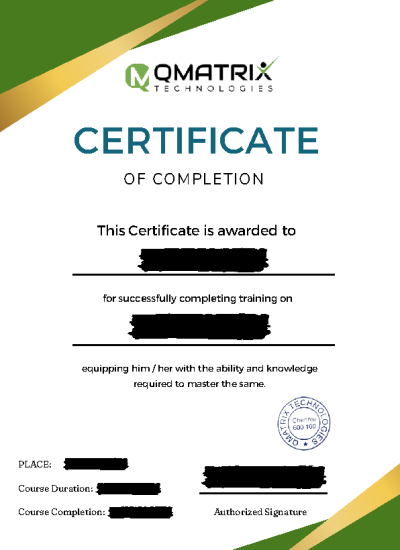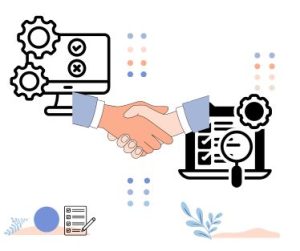Enrol in Qmatrix Technologies’ SQL DBA Training in Chennai, which is regarded as the greatest training institute in Chennai, to learn DataBase and its management from professionals in the field.
Convenient, step-by-step SQL DBA training is provided. Covers everything from Basic to Advanced Database Administration tasks, such as Always On Availability Groups (AOAG), Data Sync, Failover, Azure Cloud Migrations, Capacity Planning, Query Tuning, Management, Maintenance, HADR, Repairs, Jobs, Alerts, Security, and Real-time Projects for your SQL DBA Resume.














Qmatrix SQL DBA training in Chennai is accredited by Microsoft and covers essential topics including database management, cloud database operation and migration, and database scaling. In summary, our course is the best in the market and was created by Microsoft-enabled specialists.
Additionally, SQL DBA database certification courses are available from Qmatrix Technologies, the best software training institute in Chennai, which could help you stand out in the job market. A functional understanding of SQL, the language used in relational database management systems, will help you stand out in the employment market.
With a 100% placement record at top MNCs, Qmatrix provides its candidates with an abundance of practical experience.
Our course provides a hands-on experience by simulating real-world SQL DBA scenarios in lab sessions.
Use both offline and online proctoring to verify your MERN Stack expertise with certifications accepted by the industry.
Enhance your theoretical and practical abilities with industry-accredited expert training both in-person and virtual courses.
SQL DBA training programs designed to meet your specific domain or job requirements, ensuring targeted skill enhancement.
Ask as many questions as you like in direct question-and-answer sessions with SQL specialists about SQL DBA.


Database managers have greater control over their databases through MS SQL's amazing security capabilities for data protection.
By obtaining Qmatrix SQL DBA certification, you may show prospective employers your proficiency with SQL servers.
Your professional dedication is demonstrated by our accreditation, which most employers find desirable when hiring new employees.
Gaining proficiency with MS SQL allows you to contribute more, climb the corporate ladder, and increase your productivity and insight.
Qmatrix Microsoft SQL Server Certification is your best chance of earning a good job and compensation.
Our training boosts earning potential in high-paying IT roles with our certificates over time.
Qmatrix SQL DBA certification course is perfect for the professionals listed below:
Some of Qmatrix Technologies’ goals for SQL courses include the following:
In general, learning SQL is simple. If you know a few programming languages, you can learn the course in a few weeks. On the other hand, novices could need more time to finish the course.
To succeed as a beginner SQL user, you need to:
Your programming ability and dedication to study are demonstrated by your Qmatrix SQL DBA certification, which will increase your chances of getting hired.
The SQL certifications listed below are readily available and greatly enhance your resume:




